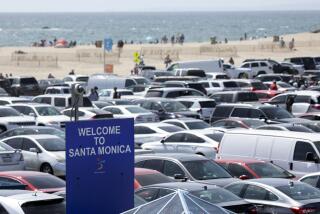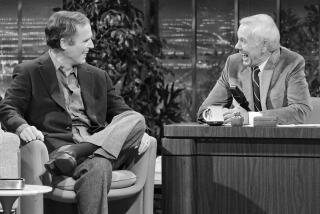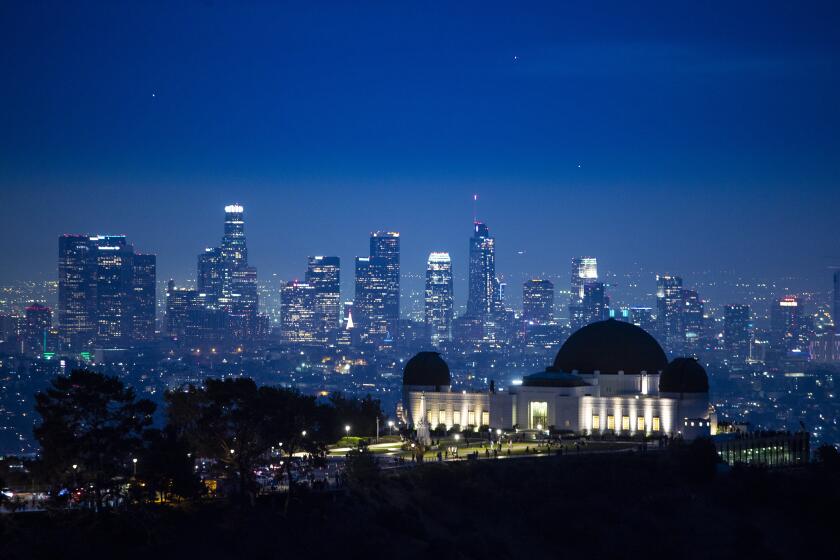Burbank Considers Taxing Users of Short-Term Lots
- Share via
BURBANK — Parking lot fees in Burbank could jump by 10% next year, as the city considers taxing users of short-term lots such as those at Burbank Airport and at hotels and restaurants.
In a 4-1 vote Tuesday night, the Burbank City Council told its city attorney to draw up an ordinance to establish a general revenue tax that would affect anyone who pays to use a parking lot at an hourly or daily rate. The tax, which can be approved only after a hearing process, could go into effect by Jan. 1, city officials said.
“I’m not sure the public wants another tax,” said Councilman Bill Wiggins, the only dissenting council member. “To me, it’s just another tax. I would have liked to find another way to give money to the schools.”
Half of the $1.5 million expected to be raised annually could go to help the Burbank Unified School District in a massive effort to rebuild its crumbling schools, officials said. Another portion could go toward street and alley improvements.
About $20 million is spent to park at Burbank lots each year, said city budget administrator Scott Mitnick. Of that, $5 million is for long-term parking of a month or more that would not be affected by the new tax.
Most of those paying the new tax will be people using the parking lots around Burbank Airport. But, Mitnick said, any time parking is paid for at a restaurant, building or hotel for less than a month, the tax will be in effect.
“The overwhelming majority [of those paying] would be non-residents,” Mitnick said.
The City Council asked that the ordinance establishing the tax exclude parking at medical or dental facilities. For example, those paying to park at St. Joseph Medical Center would not be taxed.
Because this would be a general revenue tax, which does not need a two-thirds vote of the electorate that a special tax would require, the City Council will be able to vote each year as to how they will spend the money generated by the tax.
Wiggins said he worried that the timing is wrong for the tax, because of state and county budget troubles that could eventually strain city resources. “We basically lost a source of potential revenue we can turn to in the future if our legs get taken out from under us,” he said.
More to Read
Sign up for Essential California
The most important California stories and recommendations in your inbox every morning.
You may occasionally receive promotional content from the Los Angeles Times.










